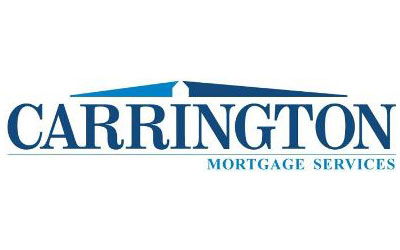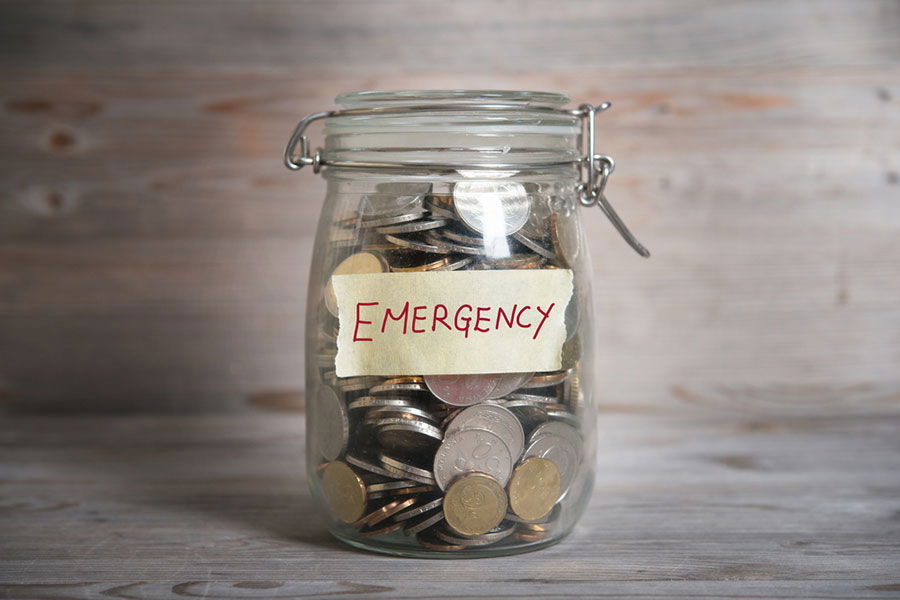Think bad credit means you can’t buy a home? Not so fast. While a low credit score can make qualifying for a mortgage more challenging, many lenders are willing to work with borrowers who’ve hit a few bumps. In fact, FHA and VA loans may be approved with scores as low as 500 to 580.
You may face a higher interest rate, but that doesn’t mean homeownership is out of reach. With the right lender and a few smart financial moves, you can still qualify for a mortgage—even with less-than-perfect credit.
8 Best Mortgage Lenders for People With Bad Credit
Some lenders are more credit-flexible than others. They offer programs built for buyers with poor or fair credit—including conventional loans with low down payments and government-backed options that are easier to qualify for.
Here are the top mortgage lenders to consider if you’re buying a home with bad credit in 2026.
1. Carrington Mortgage Services
Carrington Mortgage Services specializes in helping borrowers with poor credit or recent financial setbacks qualify for a mortgage.
2. New American Funding
New American Funding is a nationwide lender offering a wide range of loan options, including programs for borrowers with low credit scores or nontraditional income.
3. Rocket Mortgage
Rocket Mortgage is a leading digital lender known for its fast approvals and user-friendly online experience.
4. Guild Mortgage
Guild Mortgage is a nationwide lender offering a wide range of loan programs, including options for borrowers with lower credit scores and limited down payments.
5. Rate
Rate offers a hybrid mortgage experience, combining a fast digital application process with access to over 400 branch locations nationwide.
6. Veterans United Home Loans
Veterans United Home Loans is the nation’s largest VA lender, specializing in VA-backed mortgages for service members, veterans, and their families.
7. Sage Home Loans
Sage Home Loans is a digital-first lender offering a streamlined mortgage experience with competitive rates and fast closings.
8. PennyMac
PennyMac is a nationwide lender with a strong digital platform and a wide selection of mortgage options, including loans for buyers with lower credit scores.

How to Compare Lenders When You Have Bad Credit
Not all mortgage lenders treat bad credit the same way. Before you apply, take time to compare your options based on these key factors:
- Minimum credit score requirements – Some lenders accept credit scores as low as 500 for FHA loans, while others require at least 620 for conventional loans.
- Interest rates and APRs – Look beyond the advertised rate. Your actual rate depends on your credit profile, so compare the annual percentage rate (APR) for a true cost comparison.
- Down payment requirements – A larger down payment can help offset a low credit score. Some lenders still offer low down payment programs, even for bad credit borrowers.
- Loan types offered – Look for lenders that offer FHA, VA, USDA, or non-QM loans, which are often more flexible for lower credit scores.
- Fees and closing costs – Origination, processing, and underwriting fees can vary widely. Always ask for a full loan estimate to compare costs.
- Online tools and customer service availability – A strong digital application process can make things easier. If you want in-person help, check if the lender offers local support.
- Reputation and customer reviews – Read reviews from borrowers with similar credit situations. Look for consistent feedback on customer service, transparency, and approval process.
Best Loan Options for Bad Credit Borrowers
Even with a low credit score, there are several home loan options to consider:
- FHA loans – Allow credit scores as low as 500 with a 10% down payment, or 580 with just 3.5% down.
- VA loans – Available to eligible veterans and service members with no down payment and no official credit score minimum.
- USDA loans – Designed for low- to moderate-income buyers in rural areas. Most lenders require a credit score of at least 640, but exceptions may apply.
- Non-QM loans – Help borrowers with nontraditional income or recent credit issues. These loans follow alternative underwriting guidelines.
- Rent-to-own and seller financing – May be worth exploring if you’re unable to qualify for a mortgage now. These options can give you time to improve your credit.

How to Improve Your Mortgage Approval Odds
Taking a few smart steps before applying for a mortgage can boost your chances:
- Pay down credit card balances – Lowering your credit utilization can raise your credit score quickly.
- Dispute errors on your credit report – Check for inaccurate negative items and file disputes to get them removed.
- Show stable income and low DTI – Lenders want to see consistent earnings and a manageable debt load. Aim for a debt-to-income ratio under 43%.
- Save for a larger down payment – A bigger down payment reduces lender risk and can improve your chances of approval.
- Add a co-borrower with stronger credit – A co-borrower can help offset a low credit score and increase your odds of getting approved.
First-Time Homebuyer Programs for Bad Credit
Many programs are designed to help first-time buyers—even with less-than-perfect credit:
- Down payment assistance programs – Offered by states and cities, these programs help cover your down payment or closing costs.
- State housing agency programs – Often provide reduced credit requirements and partner with lenders to support first-time buyers.
- Employer-sponsored housing assistance – Some employers offer grants or loans to help employees buy a home.
- Community land trusts or nonprofit programs – Provide affordable housing options and support to low-income buyers.
See also: First-Time Homebuyer Grants and Programs for 2026
What to Expect With a Bad Credit Mortgage
Here’s what to know if you’re applying with a low credit score:
- Higher interest rates and monthly payments – Expect to pay more in interest over the life of the loan.
- Private mortgage insurance (PMI) requirements – You’ll likely need PMI unless you’re using a VA loan or putting down 20%.
- Limited lender flexibility – Not every lender will work with bad credit borrowers, so your options may be more limited.
- Possible manual underwriting – Your application may need a more detailed manual review, especially if your credit profile is outside standard guidelines.
When to Wait Before Applying for a Mortgage
If any of these apply to you, it might make sense to hold off:
- Your credit score is below 500 – Most lenders won’t approve loans under this threshold.
- You’re carrying high credit utilization – High balances on credit cards can drag down your credit score and approval chances.
- You’re recovering from major credit events – If you’ve recently filed for bankruptcy or gone through foreclosure, waiting 12 to 24 months can put you in a better position.
Final Thoughts
Bad credit doesn’t mean you’re locked out of homeownership. With the right lender and loan program, you can still qualify for a mortgage and buy a home.
Focus on what you can control—like improving your credit score, lowering debt, and saving for a down payment. These steps will open more loan options and help you secure a better interest rate.
When you’re ready, use this guide to compare lenders and find one that fits your situation. Buying a home with bad credit might take a little more effort, but it’s absolutely possible.
Frequently Asked Questions
Can I refinance my mortgage if I have bad credit?
Yes, but your options may be limited. Some lenders offer FHA Streamline or VA IRRRL refinance programs that don’t require a credit check. If you’re not eligible for those, you may need to improve your credit score or wait until you’ve built equity in your home to qualify for a better refinance rate.
See also: How to Refinance a Mortgage with Bad Credit
Does applying for multiple mortgages hurt my credit?
Not if you apply within a short window. Credit scoring models treat multiple mortgage inquiries made within a 14–45 day span as a single inquiry. This lets you shop around for the best rate without significantly hurting your credit score.
How long should I wait after improving my credit to apply for a mortgage?
It depends on how much your credit improves. Even a 20–30 point increase can open new loan options. Once your credit report updates and your score goes up, most lenders recommend waiting at least 30 days before applying so your score reflects the improvement.
Will a larger down payment make up for bad credit?
It can help. A bigger down payment lowers the lender’s risk, which can increase your chances of approval and possibly reduce your interest rate. But it won’t erase the impact of a low credit score entirely—both factors still matter.
Can I get a mortgage if I have no credit history?
It’s possible, but harder. Lenders may use alternative credit data like rental history, utility payments, or bank account activity to evaluate your application. Some loan programs, including certain FHA and non-QM loans, are more flexible when it comes to limited credit history.











